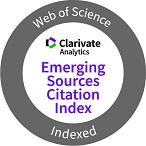Perceptions of professionals interested in accounting and auditing about acceptance and adaptation of global financial reporting standards
Keywords:
International Financial Reporting Standards, Turkish Accounting Standards, Benefit, Interpretation, Perceptions of Standards, Responsibility, Advantage of Application of International, financial Reporting StandardsAbstract
Nowadays, one of the final aims of the institutions working on transparency and standardization of financial statements, and the publication of standards related to the profession of accounting & auditing has been to put into practice a uniform global set of standards which will be applicable in finance. Before 2000, in the case of a preference between IFRS & US GAAP regarding which should be internationally accepted uniform set of application, world public opinion used to accept U.S. Generally Accepted Accounting Principles (US GAAP) as reference. Today, great majority of the world takes IFRS as a reference. This study contains evaluations related to the results of research on the thoughts & perceptions of the professionals interested in accounting and auditing about application and development of international financial reporting standards as national financial reporting standards. As a result of the research, it was determined that those interested in accounting and auditing see significant advantages in the application of IFRS. Accountants and auditors think that in case IFRS is applied, comprehensibility and reliability of financial statements shall increase, at the same time accounting frauds shall decrease.
Downloads
References
Akdoğan, N., 2007. Türkiye Muhasebe/Finansal Raporlama Standartlarının Uygulanma Süreci: Sorunlar, Çözüm Önerileri. Mali Çözüm Dergisi 80, 101-117.
Atkinson, T.C., 1946. Significant contributions of modern internal auditing to manage ment. The Accounting Review 21 (2), 121-128. http://www.jstor.org/stable/ 239914.
Baker C.R., Barbu, E.M., 2007. Trends in research on international accounting harmonization. The International Journal of Accounting, 42 (3), 272-304. http:// dx.doi.org/10.1016/j.intacc.2007.06.003.
Bagozzi R.P. & Yougae Y.I. (1988). "On the evaluation of structural equation Models" Journal of Academy of Marketing Science, 16 (Spring), 74-94.
Bekçi, İ., 2007. Muhasebe Meslek Mensuplarının Türkiye Muhasebe Standartları Hakkındaki Görüşlerinin Değerlendirilmesine Yönelik Bir Araştırma. Muhasebe ve Denetime Bakış 22, 27-40.
Callao Gastón, S., Ferrer García, C., Jarne Jarne, J.I., Laínez Gadea, J.A., 2010. IFRS adoption in Spain and The United Kingdom: Effects on accounting numbers and relevance. Advances in Accounting, Incorporating Advances In International Accounting 26, 304-313.
Carmona, S., Trombettai, M., 2008. On the global acceptance of IAS/IFRS accounting standards: The logic and implications of the principles-based system. Journal of Accounting and Public Policy 27 (6), 455-461. http://dx.doi.org/10.1016/j.
jaccpubpol.2008.09.003.
Chand, P., Patel, C., 2008. Convergence and harmonization of accounting standards in the South Pacific Region. Advances in Accounting 24 (1), 83-2. http://dx.doi.org/ 10.1016/j.adiac.2008.05.002.
Choi, F., Frost, C., Gary, K., 2002. International accounting (4th ed). Prentice-Hall, New Jersey, NJ.
Çankaya, F., 2007. An application towards the measurement of international accounting harmonization: a comparison of Russia, China and Turkey. Ulus lararası Yönetim İktisat ve İşletme Dergisi 3 (6), 127-148.
Çankaya, F., Hatipoğlu, O., 2011. An investigation of the evaluation of the accounting profession towards the applicability of IAS/IFRS in Turkey. International Journal of Economic and Administrative Studies 3 (7), 61-88.
Erdoğan, M., Dinç E., 2009. Turkish accounting standards and an analysis to the perception of accountants. MUFAD Dergisi 43,154-169.
Evci, S., 2008. Turkish accounting standards (financial reporting) and problems faced in the application of it. Gazi University, Department of Business Administration, Ankara.
Gönen, S., Uğurluel, G., 2007. Türkiye’de Uluslararası Finansal Raporlama Standartları (UFRS) Uygulamalarına Geçişte Karşılaşılan Sorunlar ve Çözüm Önerileri. Vergi Dünyası Dergisi 316, 229-236.
Janvrin, D., Caster, P., Elder, R., 2010. Enforcement release evidence on the audit confirmation process: Implications for standard setters. Research in Accounting Regulation 22 (1), 1-17. http://dx.doi.org/10.1016/j.racreg.2010.02.002.
Joshi, P.L., Bremser, W.G., Al-Ajmi, J., 2008. Perceptions of accounting professionals in the adoption and implementation of a single set of global accounting standards: Evidence from Bahrain. Advances in Accounting, 24 (1), 41-48. http://dx.doi.org/ 10.1016/j.adiac.2008.05.007.
Navarro-García, J.C., Bastida F., 2010. An empirical insight on Spanish listed companies’ perceptions of International Financial Reporting Standards. Journal of International Accounting, Auditing and Taxation, 19 (2), 110-120. http://dx.doi.org/10.1016/j.intaccaudtax.2010.07.003.
Özdemir, O., 2007. Impacts of Turkish Financial Reportıng Standards on financial statements and a research about SME’s accounting managers in the lake district area. Suleyman Demirel University, Department of Business Administration,
Isparta. Available at http://tez.sdu.edu.tr/Tezler/TS00590.pdf
Rezaee, Z., Smith, L.M., Szendi, J.Z., 2010. Convergence in accounting standards: Insights from academicians and practitioners. Advances In Accounting 26 (1), 142-154. Available at http://ssrn.com/abstract=1703584
Timoşenko, V., 2007. Uluslararası Finansal Raporlama Standartları ve Kırgızistan’da Uygulama Etkinliğine İlişkin Bir Araştırma. Kyrgyzistan Manas University, Depart ment of Business Administration, Bishkek.
Tokar, M., 2005. Convergence and the implementation of a single set of global standards: The real-life challenge. Accounting In Europe 2 (1), 49-68. http:// www.tandfonline.com/doi/abs/10.1080/09638180500379079.
Ülkü, S., 2008. A research of accountants perception about IFRS for SMEs rough draft (Sample of İstanbul). Sakarya University, Department of Business Administration, Sakarya
Downloads
Published
How to Cite
Issue
Section
License
Copyright (c) 2021 Journal of Economics, Finance and Administrative Science

This work is licensed under a Creative Commons Attribution 4.0 International License.











